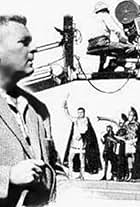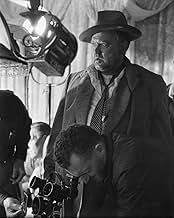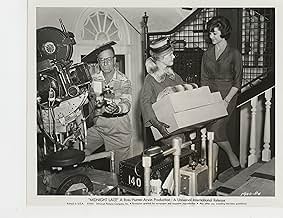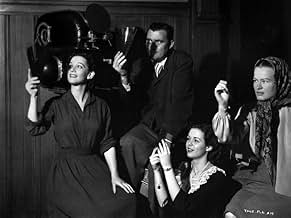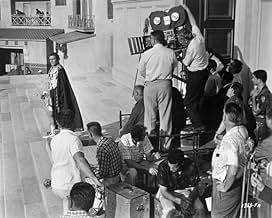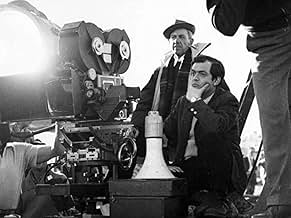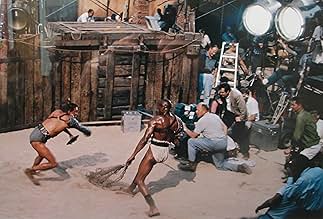Russell Metty(1906-1978)
- Cinematographer
- Camera and Electrical Department
- Additional Crew
Cinematographer Russell Metty, a superb craftsman who worked with such top directors as John Huston, Stanley Kubrick, Steven Spielberg and Orson Welles, was born in Los Angeles on September 20, 1906. Entering the movie industry as a lab assistant, he apprenticed as an assistant cameraman and graduated to lighting cameraman at RKO Radio
Pictures in 1935. Metty's ability to create effects with black-and-white contrast while shooting twilight and night were on display in two films he shot for Welles, The Stranger (1946) and the classic Touch of Evil (1958), the latter showing his mastery of complex crane shots. (Metty shot additional scenes for Welles' second masterpiece, The Magnificent Ambersons (1942), whose lighting cameraman was Stanley Cortez but had the look of Citizen Kane (1941), which was shot by Gregg Toland). At Universal in the 1950s, he enjoyed a productive collaboration with director Douglas Sirk on ten films from 1953-59, including Sirk's masterpieces Magnificent Obsession (1954) and Imitation of Life (1959), a remake of the 1934 classic (Imitation of Life (1934)). However, his collaboration with Kubrick on Spartacus (1960) proved troublesome.
A union cinematographer himself who had been an accomplished professional photographer, Kubrick exerted control over the look of his films. Kubrick gave far less leeway to his directors of photography than did traditional directors, even directors such as Welles and noted bizarre-camera-angle freak Sidney J. Furie (The Appaloosa (1966)), men who were extraordinarily active partners in crafting the look of their films. Kubrick was not deferential to his directors of photography, even to such top cameramen as Lucien Ballard and future Academy Award winners Oswald Morris and Geoffrey Unsworth. Metty and Kubrick clashed over the filming of "Spartacus," as Kubrick--with his extraordinary sense of light and effect--considered himself to be the director of photography on the film.
Ironically, it was "Spartacus" that won Metty his sole Academy Award, for color cinematography (he received his second nomination for the color cinematography on Flower Drum Song (1961)). Metty continued to work on top productions into the 1970s, including The Misfits (1961), That Touch of Mink (1962), Thoroughly Modern Millie (1967), Madigan (1968), and The Omega Man (1971). Metty also worked extensively on television, including Columbo (1971) and The Waltons (1972).
Russell Metty died on April 28, 1978, in Canoga Park, California. He was 71 years old.
A union cinematographer himself who had been an accomplished professional photographer, Kubrick exerted control over the look of his films. Kubrick gave far less leeway to his directors of photography than did traditional directors, even directors such as Welles and noted bizarre-camera-angle freak Sidney J. Furie (The Appaloosa (1966)), men who were extraordinarily active partners in crafting the look of their films. Kubrick was not deferential to his directors of photography, even to such top cameramen as Lucien Ballard and future Academy Award winners Oswald Morris and Geoffrey Unsworth. Metty and Kubrick clashed over the filming of "Spartacus," as Kubrick--with his extraordinary sense of light and effect--considered himself to be the director of photography on the film.
Ironically, it was "Spartacus" that won Metty his sole Academy Award, for color cinematography (he received his second nomination for the color cinematography on Flower Drum Song (1961)). Metty continued to work on top productions into the 1970s, including The Misfits (1961), That Touch of Mink (1962), Thoroughly Modern Millie (1967), Madigan (1968), and The Omega Man (1971). Metty also worked extensively on television, including Columbo (1971) and The Waltons (1972).
Russell Metty died on April 28, 1978, in Canoga Park, California. He was 71 years old.
